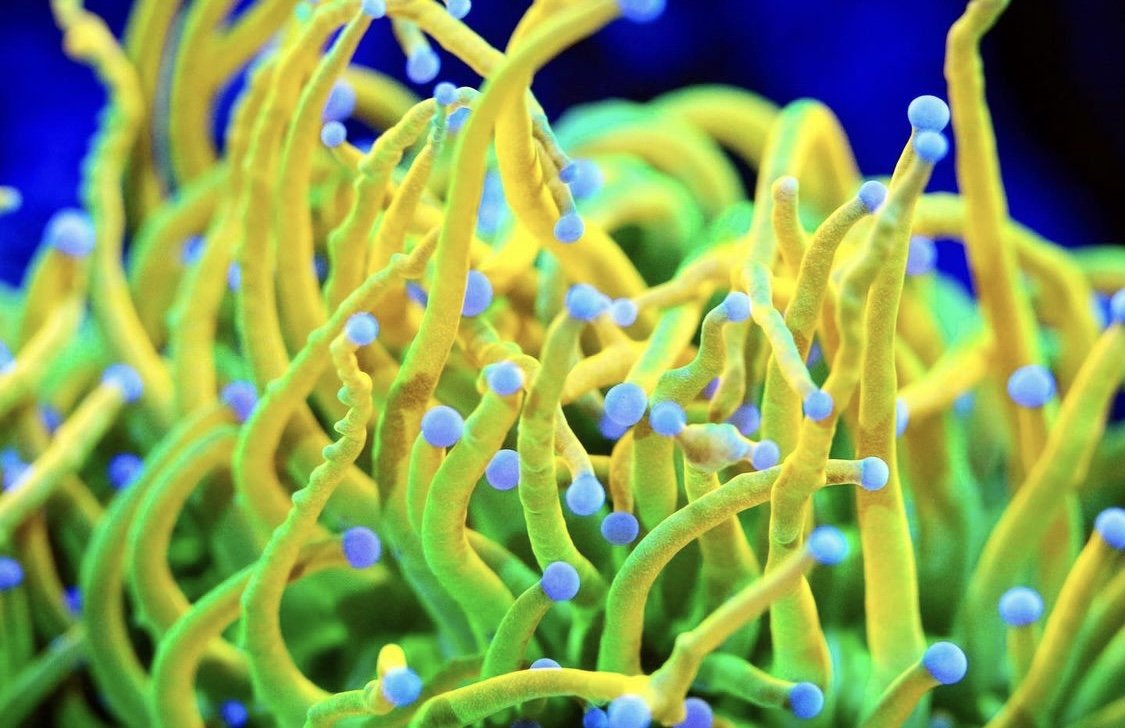
Corals are found exclusively in the sea, especially in the tropical belt. There is a difference between soft and hard corals. The skeletons are formed by calcium deposits, as a result of which the coral reefs have arisen. Corals are placed in different categories in which they are divided into sub-categories. The main categories are LPS stands for long polyp stony, SPS stands for short polyp stony and soft corals.
In the coral itself, symbiotic algae live in the polyp cells, which are called zooxanthellae. These provide the intensive colors in the living tissue of the coral. These unicellular algae are seamlessly integrated into the coral's nutrient balance with their photosynthetic metabolism. Depending on the plankton present, the size of the coral polyps can vary greatly. That is why a distinction is made between large polyps (LPS – Large Polyp Stony) and small polyps (Small Polyp Stony). Polyps range in size from fractions of a millimeter to several centimeters. Corals have been around for over 400 million years. Our goal is to continue this.
LPS Corals
LPS Corals
LPS Corals
LPS Corals
LPS Corals
LPS Corals
LPS Corals
LPS Corals
LPS Corals
LPS Corals
Soft Corals
LPS Corals
LPS Corals
LPS Corals
LPS Corals
LPS Corals
LPS Corals
LPS Corals
LPS Corals
LPS Corals
LPS Corals
LPS Corals
LPS Corals
LPS Corals
LPS Corals
LPS Corals
LPS Corals
LPS Corals
LPS Corals
LPS Corals
LPS Corals


















































